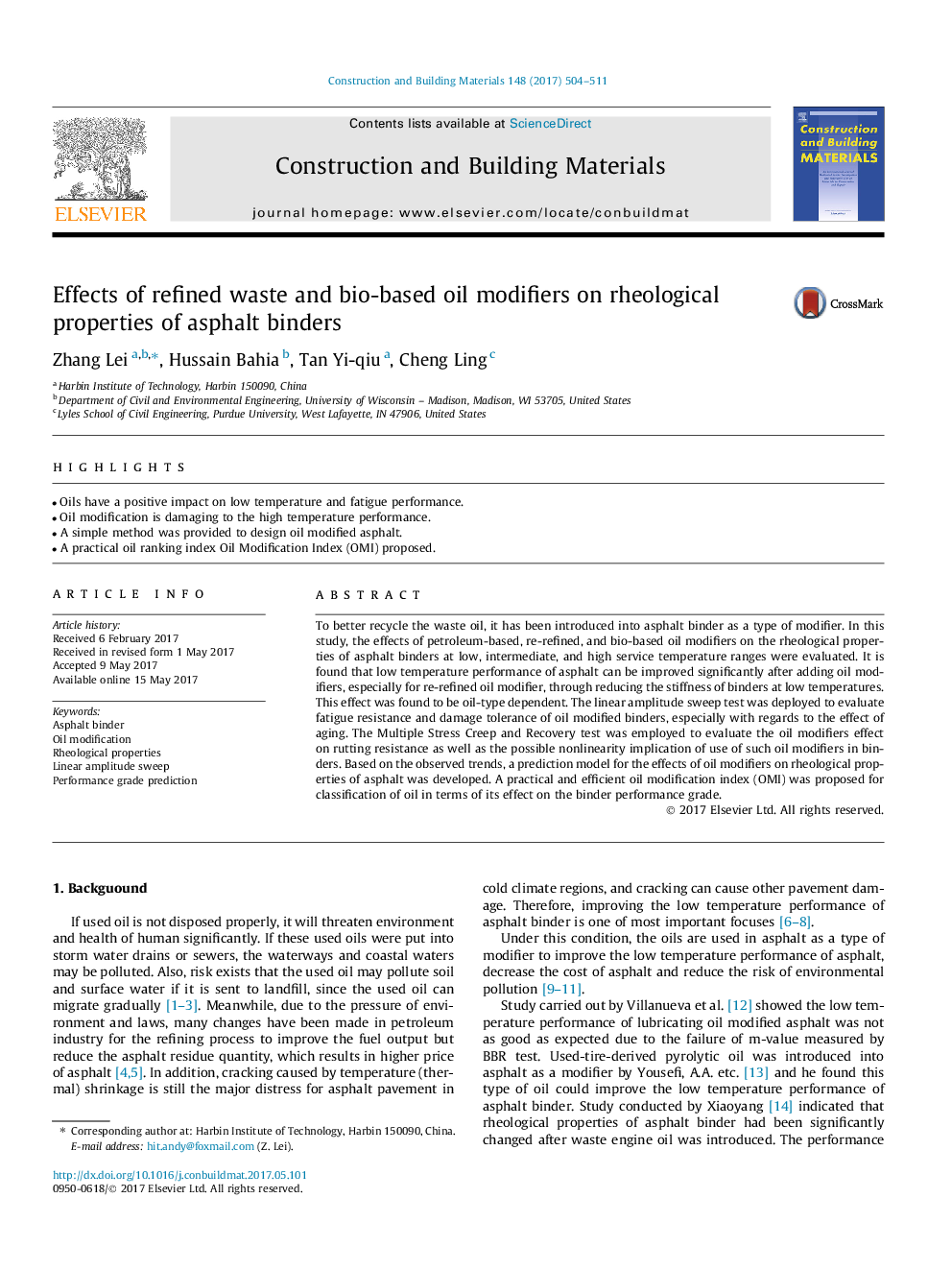| Article ID | Journal | Published Year | Pages | File Type |
|---|---|---|---|---|
| 6480361 | Construction and Building Materials | 2017 | 8 Pages |
â¢Oils have a positive impact on low temperature and fatigue performance.â¢Oil modification is damaging to the high temperature performance.â¢A simple method was provided to design oil modified asphalt.â¢A practical oil ranking index Oil Modification Index (OMI) proposed.
To better recycle the waste oil, it has been introduced into asphalt binder as a type of modifier. In this study, the effects of petroleum-based, re-refined, and bio-based oil modifiers on the rheological properties of asphalt binders at low, intermediate, and high service temperature ranges were evaluated. It is found that low temperature performance of asphalt can be improved significantly after adding oil modifiers, especially for re-refined oil modifier, through reducing the stiffness of binders at low temperatures. This effect was found to be oil-type dependent. The linear amplitude sweep test was deployed to evaluate fatigue resistance and damage tolerance of oil modified binders, especially with regards to the effect of aging. The Multiple Stress Creep and Recovery test was employed to evaluate the oil modifiers effect on rutting resistance as well as the possible nonlinearity implication of use of such oil modifiers in binders. Based on the observed trends, a prediction model for the effects of oil modifiers on rheological properties of asphalt was developed. A practical and efficient oil modification index (OMI) was proposed for classification of oil in terms of its effect on the binder performance grade.
